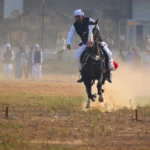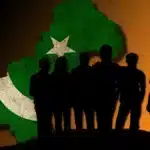Despite going through 16 years of education in the Pakistani schooling system; there are very slim chances of anyone knowing the concept of ‘free play’. The idea of allowing oneself to create their own learning, and education structure is non-existent. To follow or give instruction other than rote learning are absent.
The Modern Education System
There are many problems with the Pakistani education system. Our current education system follows the same approach factory workers followed during the industrialization of the western world.
YES! Rightly read. The modern educational method is more or less 200 years old. Before that, formal schooling was largely limited to the urban elite. However, as the way mankind operate shifted due to the result of industrialization, universal schooling became important. Factory owners demanded docile, agreeable staff who would be on time, and obey their managers’ instructions. Sitting in a classroom with a teacher all day was good preparation for that. The development and promotion of universal education were aided by early industrialists. Now in a post-industrial world, it’s worth considering how the education curriculum has progressed and whether or not this paradigm still makes sense.
However, the Pakistani Government is trying to solve some issues with its current system by introducing the Single National Curriculum (SNC). The best part about that is the mainstreaming of the government, madrassah and private education streams in Pakistan. This article is not about the SNC initiative for much has been said about that already and it is this authors’ opinion to only comment on its laudability, applicability or failure once it’s already been introduced. Critiquing it now is a little presumptuous and immature.
What is Free Play?
This article is about the early years’ education in Pakistan and more specifically about free play in its education system, in the primary years, and beyond. What exactly is this elusive free play? Free Play is described by the charity Play England (2016) as: “Children choosing what they want to do, how they want to do it and when to stop and try something else. Free play has no external goals set by adults and has no adult-imposed curriculum. Although adults usually provide the space, and resources for free play and might be involved, the child takes the lead, and the adults respond to cues from the child”.
“True free play involves any kind of unstructured activity that encourages children to use their imagination, such as playing with blocks, dolls, and toy cars. It wouldn’t include playing with most electronic toys” says Vincent Iannelli, MD in 2021.
“Learning through play appears to be a simple notion but has profound meaning. It helps children make sense of the world around them through discovery, allowing them to develop cognitively, socially, emotionally, and physically” (Hamid, 2018)
Does the Pakistani System have Space and Role for Free Play?
The short, and sad answer is no. The current system is much too focused on overscheduling children’s timetables, planning classroom activities, focusing on the syllabus to be taught and relying on a more teacher-centered, guided learning mechanism as opposed to child-led development. Even the games periods or physical education periods encourage known games as instructed by the sports teacher rather than used for children to make up their own games or stories and learning via those. The only time children are more or less left to their own devices is during the break times (recess) or when school’s over and they\’re waiting to be picked up, and coincidentally those are probably the two most enjoyed times at school for children. Why? Because the answer is simple. It Is in those brief times they are left to immerse themselves in unstructured play.
The eye-opening reality for Pakistani educators is that they need to let the children decide what they want to do sometimes. They must encourage PLAY. In all its forms and versions. Due to misconception, Pakistani educators get the wrong idea from the word \’play\’. It doesn’t mean leaving the children to wreak havoc and run around doing and achieving nothing.
Types of Play
To encourage various developmental achievements, several kinds of play are taught to children.
- Social Play: Social play encourages children to make up games. Letting them create their own universe by making up the rules about what they want to do and how they want to go about it. They can figure out how to “win” or “lose” a game and what the game itself actually will be.
- Independent Play: Here children can read books allowed, play with puzzles, or make up individual games to keep themselves occupied, and facilitate learning via those activities.
- Guided Play: Guided play allows for the involvement of teachers or mentors but only at a facilitating level, not in a role of command, and control. For example, the teacher gives the students a ball and some other traditional play equipment and asks them to invent a new way to play with them.
Children learn to explore their physical, and social environments by play, as well as imagine and create new worlds. They put their problem-solving abilities to the test, deciding what to do, what is wise, and what is healthy. According to some studies, free play helps activate the “fight or flight” reaction without activating cortisol (the stress chemical associated with fight or flight), making it a good way to practice dealing with danger.
What can play even achieve, you may ask?
- Intellectual Development: Mental capabilities, subject understanding, and imaginative thinking are all enhanced by play. When children count, identify, construct and analyze patterns with blocks or when they sketch, they are counting, classifying, making, and analyzing patterns. Dramatic play helps children to practice telling stories in sequential order, using a broad vocabulary, and writing. Construction plays in particular has been shown to improve problem-solving, and mathematical skills.
- Social Development: Playing with someone includes recognizing social signals, listening, and putting oneself in another’s shoes — both of which are critical facets of cultivating empathy. Children must also exchange thoughts, and convey emotions when bargaining, and making agreements in social play.
- Emotional Development: Children learn self-regulation by following standards and paying attention. This is while experiencing feelings like, anticipation or anger, especially in social, and supervised play. Children learn how to set and change rules, as well as when to lead and when to follow. This shows mentors who natural leaders and followers are and how to reverse those roles to encourage leaders to be followers and vice versa.
- Physical Development: Many children tend to play via their bodies. Good physical health is necessary for progress in other fields. Children gain stamina, muscle power, balance, and reflexes through athletics, outdoor games, and dance. They test boundaries and do new activities, such as; running down a hill or diving underwater, which encourages them to take safe risks and push the boundaries of learning.
Of course, not all modes of play have these advantages. It can be difficult for an outside spectator to distinguish “good play” from useless interaction or bullying at times. (For instance, are the children on the field playing tag or just taunting one another?)
Measures of Creating Playful Learning Situation:
Adults should look for three measures of playful learning in these situations: choice, wonder, and delight. Examples of children exercising choice are; setting priorities, creating and exchanging strategies, designing rules, negotiating challenges, and deciding how long to play. Children’s wonder manifests itself in their discovery, development, pretending, imagination, and trial-and-error learning. Delight appears as delight in the form of children smiling, laughing, and generally looking like they are enjoying themselves.
Free play is a must needed initiative in Pakistani schools. The system must respect children enough to see that they might have some unique ideas of learning.
As educators and parents, people should be open to letting them experiment. If this pandemic has taught us one thing, let it be the importance of the power of imagination when children were closed in houses, rooms and apartment complexes. Exploring their creative understanding of free play; might give them the tools to create an entire universe within the four walls we have placed them in. Let them learn through play!
The views expressed in this article are the author’s own. They do not necessarily reflect the editorial policy of the South Asia Times.
Mishaal Mariam Moeen, an author and mixed media artist, expresses her creativity through written words and visual art forms.




![Al-Qaeda, TTP, ISKP in Pakistan's backyard: Pakistani troops observe the area from a hilltop post in Khyber district [File: Anjum Naveed/AP]](https://southasiatimes.org/wp-content/uploads/2022/10/AP21312682025351-1-150x150.webp)
Add a Comment